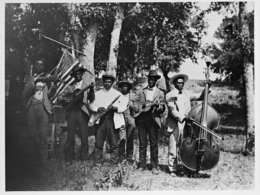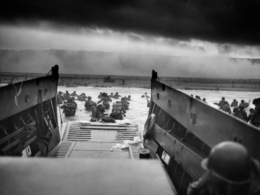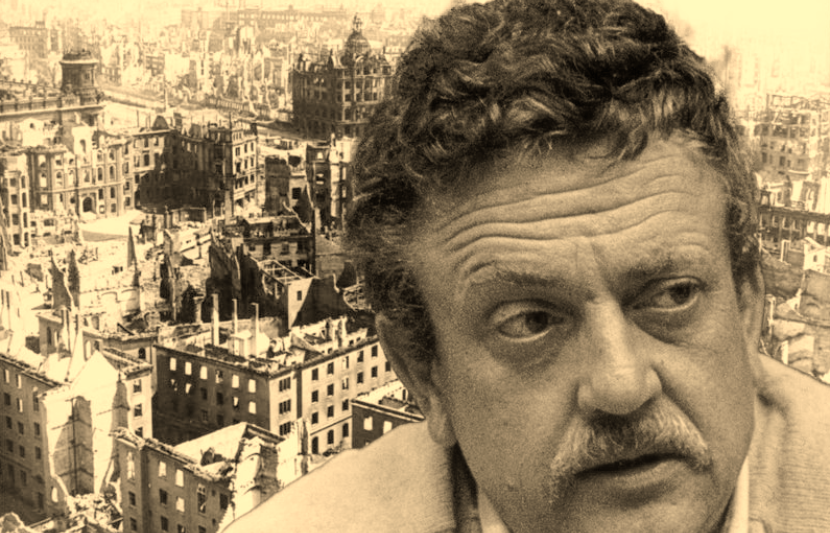
Kurt Vonnegut took shelter in a meat locker to survive the firebombing of Dresden in 1945, an experience he channeled in Slaughterhouse-Five. (Photo: Bernard Gotfryd / Public Domain)
This post was originally published on 11/11/2010.
A post on Daily Kos cites the Veterans for Peace Armistice Day Message and recalls the shift in focus that occurred in 1954, when Armistice Day was changed to Veterans Day. Veterans for Peace quotes Kurt Vonnegut’s preface to Breakfast of Champions when Philboyd Studge travels “in time back to November eleventh, nineteen hundred and twenty-two.”
I will come to a time in my backwards trip when November eleventh, accidentally my birthday, was a sacred day called Armistice Day. When I was a boy, and when Dwayne Hoover was a boy, all the people of all the nations which had fought in the First World War were silent during the eleventh minute of the eleventh hour of Armistice Day, which was the eleventh day of the eleventh month.
It was during that minute in nineteen hundred and eighteen, that millions upon millions of human beings stopped butchering one another. I have talked to old men who were on battlefields during that minute. They have told me in one way or another that the sudden silence was the Voice of God. So we still have among us some men who can remember when God spoke clearly to mankind.
Armistice Day has become Veterans’ Day. Armistice Day was sacred. Veterans’ Day is not.
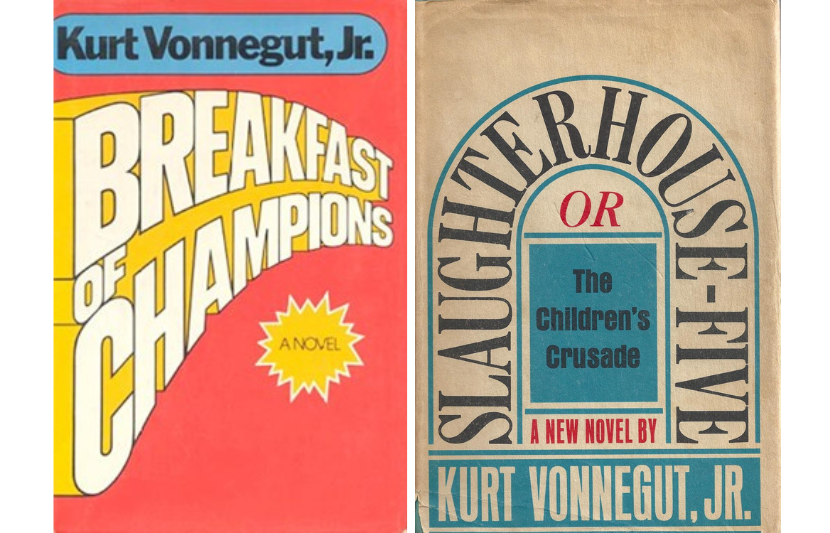
First-edition covers of Breakfast of Champions (Delacorte, 1973) and Slaughterhouse-Five (Delacorte, 1969)
Vonnegut was indeed born on November 11, 1922, and served as an infantry battalion scout in World War II. Captured by the Germans at the Battle of the Bulge on December 19, 1944, he became an eyewitness, as a prisoner of war, to the Allied bombing of Dresden, as he described in a Paris Review interview:
. . . a siren went off—it was February 13, 1945—and we went down two stories under the pavement into a big meat locker. It was cool there, with cadavers hanging all around. When we came up the city was gone.
The Germans called the building that housed the POWs Schlachthof Funf (Slaughterhouse Five) and that gave Vonnegut the title of his best-known, best-selling novel. However, as Elizabeth Abele notes in her essay “The Journey Home in World War II Novels,” Vonnegut was working through his wartime experiences in all his writing in the 1960s:
It actually took Vonnegut four sequential and interconnected novels to express his personal response to the violent reality of World War II—Mother Night (1962), Cat’s Cradle (1963), God Bless You, Mr. Rosewater (1965), and finally Slaughterhouse-Five (1969). . . Their focus is on the unintentional results of war: not only the killings of civilians but, just as importantly, the aftereffects that follow the veteran home; the particular manner in which those left behind are nonetheless infected by war.
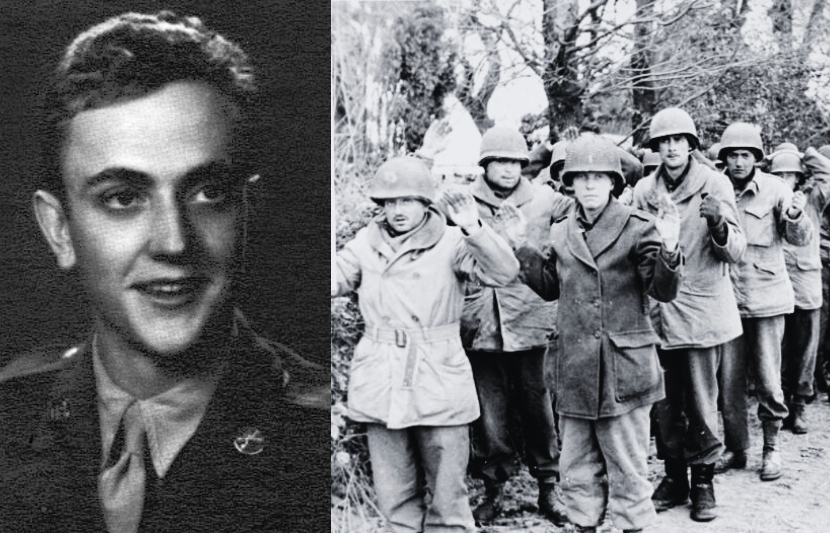
Vonnegut in military uniform during World War II and U.S. POWs
captured in December 1944 (CC BY-SA 3.0 de)
The “looping” element in Vonnegut’s writing, his altering of the flow of time, which some readers credit to his roots in science fiction, has been recognized by other war veterans as a technique that resonates with their experiences, as novelist Tim O’Brien explained in a 2005 interview with Zoe Trodd:
The looping aspect of my writing is important. To tell stories in a linear way would be deceitful. The trauma doesn’t end, it comes back in memory, returns and returns, often with a difficult take on the original event; horror, outrage, disbelief. War and trauma don’t end in a literal sense, they reverberate across time, and my repetitions are a way to get at this psychological truth.
Vonnegut’s personal war-narrative, as Abel details, “loops throughout his entire oeuvre, from Mother Night to A Man without a Country (2005).”

